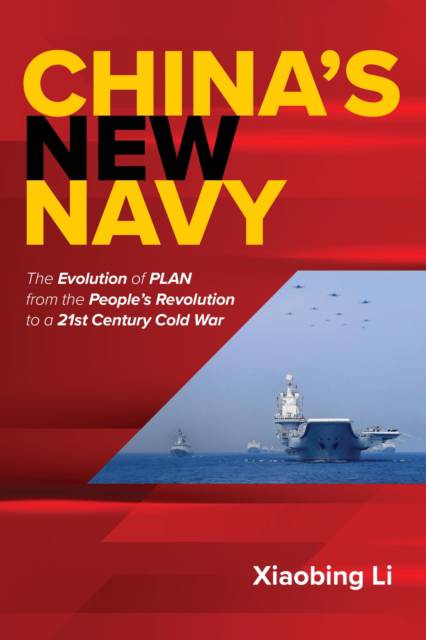
- Retrait gratuit dans votre magasin Club
- 7.000.000 titres dans notre catalogue
- Payer en toute sécurité
- Toujours un magasin près de chez vous
- Retrait gratuit dans votre magasin Club
- 7.000.0000 titres dans notre catalogue
- Payer en toute sécurité
- Toujours un magasin près de chez vous
China's New Navy
The Evolution of Plan from the People's Revolution to a 21st Century Cold War
Xiaobing Li
Livre relié | Anglais
56,45 €
+ 112 points
Description
Winner of the 2023 Chinese Historians in the United States Book Award A survey of Chinese naval operational history, Li's book focuses on the major battles and important engagements of more than 1,200 Chinese naval operations from 1949-2009, including the joint landing campaigns in the Taiwan Strait Crises, naval battles in the South China Sea, air defense against American pilots during Operation Rolling Thunder, and anti-piracy operations in Africa. His findings elucidate the origin of and changes of the People's Liberation Army Navy (PLAN) by examining its adaptation, modernization, and setbacks in the past sixty years. Based upon newly available Chinese sources and personal interviews with retired generals, admirals, and PLA officers, the work offers Chinese perspective on the study of PLAN war fighting history. The untold operational stories of the Chinese captains, boatswains, sailors, gunners, and naval pilots provide a first-hand look at a naval officer and his crew during the Cold War and beyond. They also indicate important lessons learned by the naval leaders who faced the enemies during a period when the PLAN underwent a complex transformation. China's New Navy explains how the Chinese Navy's operational experience brought about its reform. The PLAN changed from a coastal defensive fleet in the 1950s, to a modern navy in the 2000s. It concludes that some early experiences are still relevant to Beijing's leaders as they consider specific strategic and operational challenges. Li redefines and adapts such strategic Cold War concepts as nuclear deterrence and local warfare to be meaningful in today's strategic context, one in which PLAN is ready to open fire first in a defensive offense against the other sea powers like the U.S. Navy.
Spécifications
Parties prenantes
- Auteur(s) :
- Editeur:
Contenu
- Nombre de pages :
- 304
- Langue:
- Anglais
Caractéristiques
- EAN:
- 9781682477755
- Date de parution :
- 15-10-23
- Format:
- Livre relié
- Format numérique:
- Genaaid
- Dimensions :
- 161 mm x 232 mm
- Poids :
- 539 g

Les avis
Nous publions uniquement les avis qui respectent les conditions requises. Consultez nos conditions pour les avis.






